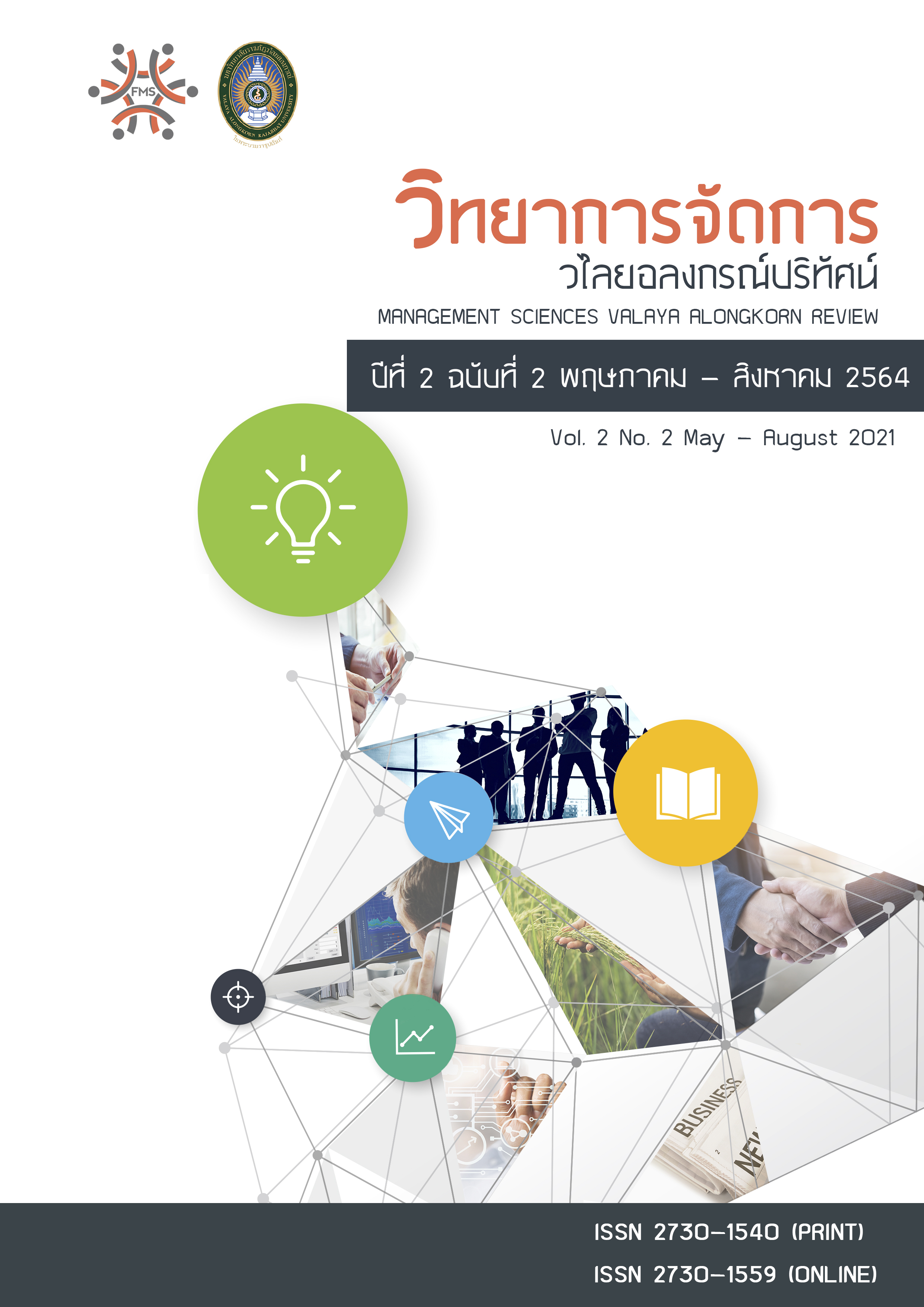ปริมณฑลสาธารณะกับการใช้ทวิตเตอร์ เพื่อการเคลื่อนไหวทางการเมืองไทยของภาคประชาชน ในช่วงปี พ.ศ. 2563 - 2564
Main Article Content
บทคัดย่อ
ความก้าวหน้าของเทคโนโลยีสารสนเทศทำให้การสื่อสารทางการเมืองมีการปรับเปลี่ยนไปตามสังคมยุคทันสมัย เครือข่ายสังคมออนไลน์ทวิตเตอร์ ได้ทำหน้าที่เป็นพื้นที่ปริมณฑลสาธารณะ (Public sphere) ที่มีความสำคัญในช่วงวิกฤตทางการเมืองของประเทศในช่วงปี พ.ศ. 2563 - 2564ทวิตเตอร์จึงมีผลต่อปัจจัยด้านการมีส่วนร่วมทางการเมืองของภาคประชาชนในสังคมโดยตรง และมีบทบาทที่สำคัญทางการเมืองในกิจกรรมต่าง ๆ ทำให้การเคลื่อนไหวทางการเมืองในโลกออนไลน์มีพลวัตอย่างมีนัยสำคัญที่คู่ขนานไปกับโลกแห่งความเป็นจริง เป็นพื้นที่ปริมณฑลที่แสดงให้เห็นมิติของพื้นที่สร้างความสัมพันธ์ทางสังคมของประชาชนกับรัฐ เป็นเครื่องมือเพื่อการขับเคลื่อนเปลี่ยนแปลงสังคมและมีอิทธิพลเชิงประจักษ์ของภาคประชาชน และมีความสำคัญยิ่งต่อบริบททางการเมืองไทยในปัจจุบัน ซึ่งสามารถอธิบายได้ดังนี้คือ (1) ปริมณฑลสาธารณะที่แสดงการต่อต้านอำนาจรัฐของประชาชน โดยสามารถสร้างความหมายของการต่อต้านอำนาจรัฐอย่างชัดเจน เพื่อนำพาให้สังคมได้เข้าใจในจุดประสงค์ของการเคลื่อนไหวของต่อต้านมากยิ่งขึ้น (2) ปริมณฑลสาธารณะที่แสดงความเป็นส่วนหนึ่งของอุดมการณ์ทางการเมือง เกิดเป็นความรู้สึกเป็นพวกเดียวกัน ความผูกพันที่มีเป้าหมายตรงกันของมวลชน ความรู้สึกเป็นส่วนหนึ่งของขบวนการ และ (3) ปริมณฑลสาธารณะที่แสดงการเสียดสีล้อเลียนทางการเมืองในสื่อสังคมออนไลน์ ทำให้ประชาชนสามารถวิพากษ์วิจารณ์ และแสดงความคิดเห็นในประเด็นต่าง ๆ ได้อย่างกว้างขวาง
Article Details
บทความ ข้อความ ภาพประกอบ และตารางประกอบที่ลงพิมพ์ในวารสารเป็นความคิดเห็นส่วนตัวของผู้นิพนธ์ ถือเป็นความรับผิดชอบของผู้นิพนธ์แต่เพียงผู้เดียว กองบรรณาธิการไม่จำเป็นต้องเห็นตามและไม่มีส่วนรับผิดชอบใด ๆ
เอกสารอ้างอิง
Cohen, Carl. (1971). Civil Disobedience. New York and London: Columbia University Press.
Gramsci, A., (1971). Selections from the prison notebooks, edited and translated by Quintin Hoare and Geoffrey Norwell Smith.
Habermas, J. (1989). The structural transformation of the public sphere: An inquiry into a category of bourgeois society (T.Burger,Trans.). Cambridge, MA: MIT
Press.
Hemmin, A. (2013). Social Media Consumption Behaviors and Opinion towards Results of Experiencing Social Media in Bangkok Metropolitan. Master's Thesis of
National Institute of Development Administration.
Kaewsuksai, R. & Jussapalo, C. (2013). Online Social Network: Facebook Usage for the Learner’s Development.
Kusuma Kuyai. (2013). The Process of Creating Identity: Psychoanalysis and Social Science.
McAdam, M. D. D. (2003). Social movements and networks: Relational approaches to collective action. Oxford University Press.
McQuail, Dennis. (1983). McQuail’s Mass Communication Theory. London: Sage Publication.
Milbrath, L. W. (1971). Individuals and government. Politics in the American States.
Pusey, Michael. (2003). Key Sociologist: Jürgen Habermas. New York: Routledge.
Rohlinger, D. A. (2012). How Social Movements are using the Internet to
Change Politics. Retrieved December 18th 2020, from
https://scholars.org/brief/how-social- movements-are-using-internet-change-
politics.
Shirky, C. (2009). Here Comes Everybody: The Power of Organizing Without Organizations. New York: Penguin Books.
Tarrow, Sidney. (1994). Power in Movement: Social movements, collective action and politics. Cambridge: Cambridge University Press.
Weiner, M. (1968). Political participation: Crisis of the political process.


